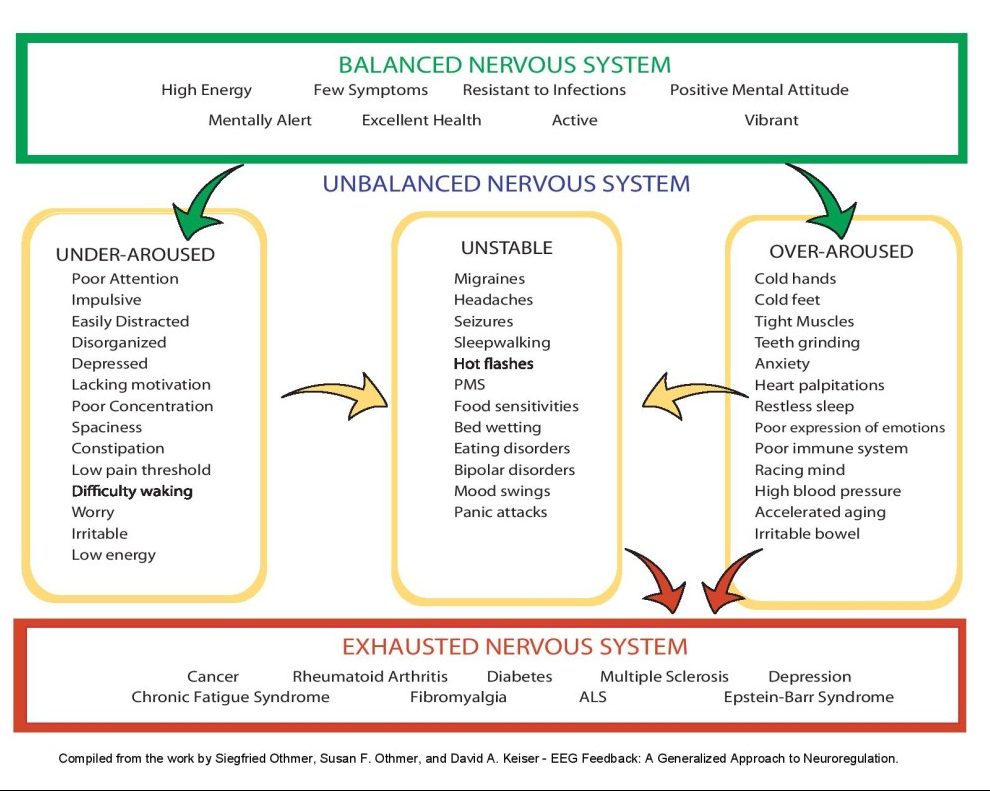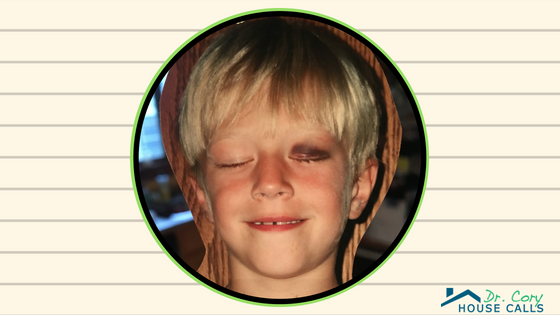Learning About My Own Brain and Attention…
It was a sunny morning, the dew was just burning off the grass. I was ten years old, and I needed help with attention.
One of my older brothers was (and is still) really into golf. He was practicing with his pitching wedge in the front yard of our parent’s farmhouse. I grabbed my baseball mitt and stealthily snuck around the back side of the pole barn to make my way to the golf ball landing zone unnoticed.
I knew I had to make a break for it as fast as I could after he hit the next ball high into the air. That was my chance to run out, as he would never have hit the ball with me out there otherwise. He swung his club down to connect, and the ball soared into the air as I broke into a sprint to the middle of the backyard to get into the outfielder’s position.
At this age, I was unable to anticipate consequences.
I did not have the full ability to process the future and how each decision would be good, bad, or otherwise. I was stuck in the present moment, which often led me to situations like the rest of this story.
As the tiny white ball started to reach its peak height, I reached my fielding position. I could hear Andy yelling something, but I was hyper-focused on the ball, which was starting its descent and simultaneous path directly into the light of the sun. As I took small steps forward to anticipate the catch, I realized I couldn’t see the ball through the sun. Who knew that a golf ball would be difficult to track in those conditions…
Not this kid.
The ball finally plummeted to the grass about one foot before me, just as I planned. I had aborted the original mission of catching the ball in the mitt due to the sun and was going to run the ball back to my big brother after it landed in front of me.
CRACK!
I saw the ball land directly on a flat rock as it violently ricocheted back up directly into my face.
I don’t recall the full details of what happened next, but Andy says it looked a bit like a backflip. The ball connected directly with the underside of my eyebrow, and after my backflip, I hit the ground and began to scream out in pain.
Prior to this incident, I was operating from something described as an “under-aroused brain state.” This term describes behavior from abnormal autonomic nervous system function and under-creation of the higher speed brain waves needed to stay focused. I was always in a state of sensory-seeking behavior which allowed me to create this stimulation my brain so-craved.
I craved danger, impulsivity, and sensory input.
I see it in kids every day in practice. They NEED to behave in specific ways to get stimulation. For me, acting impulsively was one of the symptoms of my under-aroused brain. I also had many other symptoms that pointed to an under-stimulated brain state. After 10+ years of neuroscience study, training, and practice, I can see these correlations easily with a thorough examination of the children and history-taking with the parents.
The Under-Aroused Brain & Your Child’s Attention
If you are a parent of a child with attention deficits, you will relate to much of what I am about to share. I was that kid. I can still feel affected by it if I don’t stay on track with my non-negotiable life decisions and wellness goals.
Here is some food for thought from a neurologically based chiropractor who grew up a sensory-seeking kid.
The human brain is constantly buzzing with electrical signals and frequencies. You will be familiar with this if you think about the EEG measurements, or Electroencephalogram, with all the leads and wires attached to the scalp that are measuring the output of this electricity. We are measuring brain waves with these tests, which tell much about the overall state of the brain.
It’s essential to recognize what the ideal electrical brain function is. What is more, we know how it correlates with our ability to learn, store important memories, and control a wide array of emotions and reactions, and most importantly, how we decide to respond in the future.
As children develop through early childhood and well into adolescence and adulthood, they will (slowly) develop the patterns associated with adult brainwave production as they age.
During this period, we commonly see patterns that show certain children. Many of them already have a diagnosis of attention deficit. They cannot produce enough of the higher frequency brain waves and commonly over-produce the lower, slower ones.
The problem for these children and the adults they grow into is that we have what is referred to as an under-aroused brain state. Not just sometimes but most of the time. It can be part of the cause of many of the most problematic symptoms associated with that type of brain function. It’s our default setting when stressed, especially without proper sleep, hydration, or nutrition. This slower, lower-energy brain state signals the body to do many things. The under-aroused brain also causes much of our “normal everyday” experiences to be forgotten. Suppose they don’t produce much emotional response, so they don’t get “stored” as a memory event.
View this chart below to wrap your head around what can happen after a brain develops a regular state of under-arousal. These are the kids who get diagnosed with attention deficits.

I am a chiropractor, and my scope of practice does not include prescribing or managing drugs or performing/consulting on surgery. From the medical scope of practice, it appears to be achievable for prescribing doctors to boost their patient’s brainwave activity with the gold-standard stimulant medications of the day. The drug actions for these medications stimulate higher frequency brain function through neuro-chemical pathways, which reduce the under-arousal type brain frequencies and calms the sensory seeking behavior we are used to seeing. If your children take these meds, you know exactly what I am discussing. Lots of stuff stops happening while the medication is actively affecting brain function, such as tics, shaking of legs or bouncing, fidgeting, chewing on clothing, itching, scratching, impulsive behavior/actions, nail-biting, etc.
Some of the strategies are nutritional, some are activity based. Moreover, many chiropractors have training and experience working with all members of the family from birth through retirement.
To schedule a free consultation or appointment, visit my online scheduling portal: VEIW DR CORY’S SCHEDULE
If you are reading this and thinking “this is my kid” then let me help you. I will hlep you to make a plan to get your kid on a natural approach to moving forward in life with a new focus-building tool kit. Anytime of the year is the right time to introduce your child to a house call appointment, life coaching, and speciality chiropractic care. It helps manage the stress of under aroused brain function.
I developed appointments that include care specifically for “kids like me”
This article is not intended for the purpose of treating or diagnosing any medical condition. It solely represents my personal account of applying scientific knowledge to address my own experiences. As a licensed chiropractor, my professional practice strictly adheres to the scope of practices defined by the state in which I am licensed. It is important to clarify that this written content is not asserting or claiming that chiropractic care is directly applied to treat attention deficits. Any health-related decisions or interventions should be made in consultation with a qualified healthcare professional, considering individual circumstances and under the appropriate medical guidance. This article serves informational purposes only and should not be construed as medical advice.


